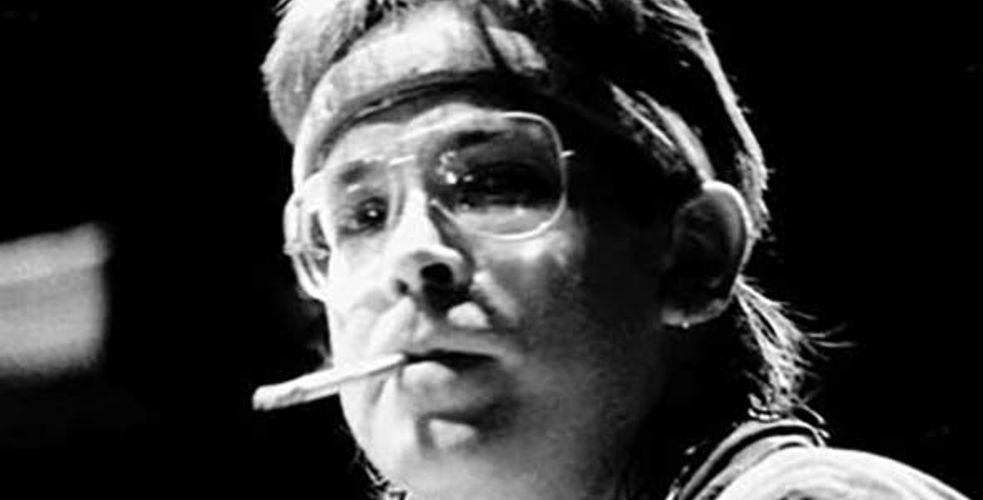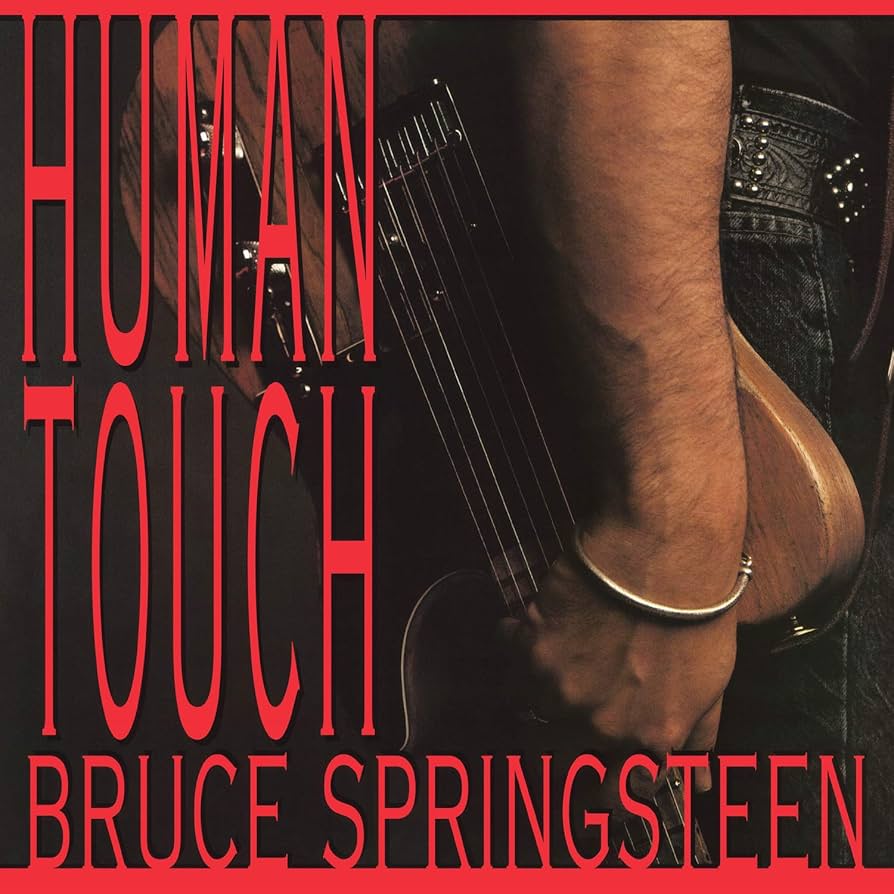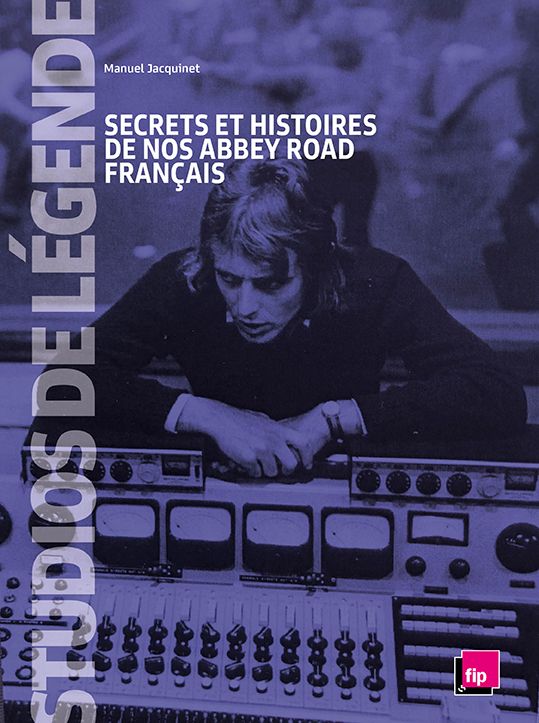1992, the deadly summer: Jeff Porcaro, Michel Berger

The accidental inhalation of pesticides in his Californian garden prematurely deprived the world of one of its most incredible drummers: Jeff Porcaro. That was almost thirty years ago (on 5 August 1992). A book was quietly released in 2020 about the life of the Californian prodigy who also played with Steely Dan, Bruce Springsteen, Jean-Noël Chaléat and Alain Chamfort. Summer is the perfect time to read books. Especially those that make for an unforgettable listening experience.
For a drummer, it's all about timing and, as Jeff Porcaro said in his last interview, being in the right place at the right time. We all know the story of Pete Best being replaced by Ringo Starr. ‘Not only was he never late for our meetings,’ says Gary Katz, Steely Dan's producer, in a biography dedicated to him, It's About Time, ‘but he was two hours early.’ This excessive punctuality would prove tragic when Jeff Porcaro died prematurely at the age of 38 in 1992.
The lad was never one to waste time: at the age of 20, he played on Steely Dan's Katy Lied, with the exception of one song where the legendary Hal Blaine took over the drumsticks. The baton had already been passed a few years earlier, when Porcaro replaced the drummer for the Beach Boys and the Ronettes, the man with 35,000 recording sessions under his belt, in the big band of Jack Dougherty, producer of the Carpenters. The 17-year-old high school student was then about to sign his first contract with Sonny & Cher. In his last interview, a few months before his death, Jeff Porcaro, showing signs of chronic dissatisfaction and a highly developed sense of self-criticism, as described by his biographer and friend Robyn Flans, was already talking about leaving: "We were in Hawaii and there was a guy playing the wood drum and it was grooving. And I thought to myself, “Mate, forget it. Throw it all away and come and live here with your family and bang on a piece of wood. It's bound to be more exciting than all the crap you play in the studio in LA.”
Toto experiences its first setbacks, which Porcaro, with characteristic modesty, attributes to a certain lack of personality. The band, he acknowledges, is the sum of the talents of highly experienced studio musicians, but whose aura does not match that of the rock “n” roll stars Porcaro has rubbed shoulders with during his career. The country's most sought-after drummer ultimately accepts, without mentioning it, the cryptic label used to describe the band's music, AOR (Adult Oriented Rock), which some refer to, not without a hint of sarcasm, as ‘dad rock’. The year is 1992: Porcaro has just played drums with Roy Orbison, Sergio Mendes, Dire Straits, Celine Dion, Michael Jackson, Aretha Franklin, Madonna. Among others. In fact, he had worked with all the biggest stars of the era in America who had decided to record in Californian studios. Everything he touched turned to gold, or rather, everything that glitters sought his magic touch, which, sadly, would not last much longer.

Let's rewind
He knows all about the shadow of stardom. A famous anecdote recounts a particularly stormy recording session with Rickie Lee Jones, during which Jeff Porcaro, in a fit of rage, ended up throwing his drumsticks at the tom-toms before slamming the studio door behind him. Neither Porcaro nor Jones held it against each other, as Jones called on his services again a few years later, without him taking offence, for a session that went wonderfully well this time. This anecdote speaks volumes about the professionalism and elegance of a musician who was passionate but not willing to be walked all over.

Like many children born in the 1950s, Jeff Porcaro was deeply influenced by the British Invasion and the Beatles' appearance on The Ed Sullivan Show, an epiphany recounted in Robyn Flans' biography of the drummer, the French translation of which was published in digital format last year (Jeff Porcaro: It's About Time, ed. Hudson Music): "9 February 1964 was a memorable night for the Porcaro family, as it was for most of the United States. It was the Beatles' first appearance on The Ed Sullivan Show, and it had a tremendous effect on the Porcaro boys. The young man was predestined for greatness: his father was himself a renowned studio drummer who had played with Frank Sinatra, Lalo Schiffrin, Stan Getz and, like his son, Pink Floyd and Madonna, no less. However, according to Jeff, this illustrious predecessor had no influence on his career as a musician: when he started out, Jeff had barely studied the drums, destined for a bohemian lifestyle, with no other ambition than to be an ‘outsider and paint’. However, the testimonies collected by Robyn Flans in her biography of Porcaro contradict this image of a lazybones, which is undoubtedly tinged with a certain amount of coquetry. Porcaro was in fact a hard worker who spent hours every day practising with recordings of his favourite musicians: ‘I would go into the living room, put on my headphones and play along to “Boogaloo Down Broadway”.’
The drums were cool on that, and I loved that feeling. […] I played with all the Beatles records, all the Hendrix records, and that's where I acquired a good part of my ability to play one type of music authentically rather than another. Authenticity was another key word for the drummer, who did not make technical virtuosity an obsession, as one of his childhood friends, Kerry, explains: "After listening to the greatest virtuosity at other concerts, we heard Buddy Miles Express with his powerful groove and we looked at each other and said, 'That's good! ' At that moment, we began to understand and appreciate pop music." Joe Cocker, Jackson Browne, Al Stewart, Donna Summer, Elton John, Herbie Hancock, Paul Simon, Randy Newman, Bruce Springsteen, Allen Toussaint, Randy Newman, Jon Anderson, Rod Stewart and Hall & Oates are just a few of the countless stars with whom Jeff Porcaro recorded. The concert held in his honour after his death brought together George Harrison, Donald Fagen, Boz Scaggs, Don Henley, David Crosby, Eddie Van Halen, to name but a few... On his grave at Hollywood Hills Cemetery, the epitaph reads: ‘Our love doesn't stop here; it lives forever, on the wings of time,’ the lyrics of a song from Toto's Kingdom of Desire.

Excerpt from the book: What his father will say to him when he learns that Jeff wants to give up his career to start a band: ‘Mate, you're crazy. If you're a studio musician and you suddenly leave town for six months, there's so much competition that someone will quickly take your place. But we knew we had to take the risk of starting a band.’ In a second book (see below), we learn that other Toto musicians visited studios in France, including Steve Lukather at Super Bear Studios in Berre-les-Alpes. To play with Elton John.
To purchase the book, click here.
Some suggestions for summer reading.
In a book about legendary studios in France, one of Françoise Hardy's close friends and composers, Jean-Noël Chaléat, recounts how his career suddenly took off: Manureva, which he co-wrote with Alain Chamfort, was recorded in a small studio in California, Sound Connection Studio: ‘There were so many good musicians and studios in the valley,’ he says. Discreet and little known despite his immense talent, En-Contact tracked down the native of Drôme. ‘I've never heard drums like Jeff Porcaro's during the recording of Rock'n Rose at Record Plant Studio.’
The latest, updated edition of the reference book written about Michel Berger is also fascinating: Yves Bigot, its author, has enriched it with information about the end of the singer's life, who played the piano standing up and fell in love with a woman with whom he planned to start a new life in California, Béatrice Grimm. California...



